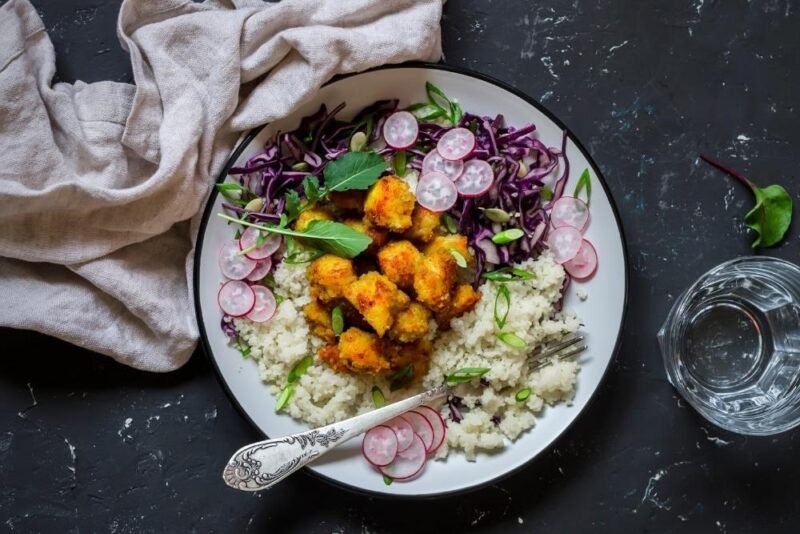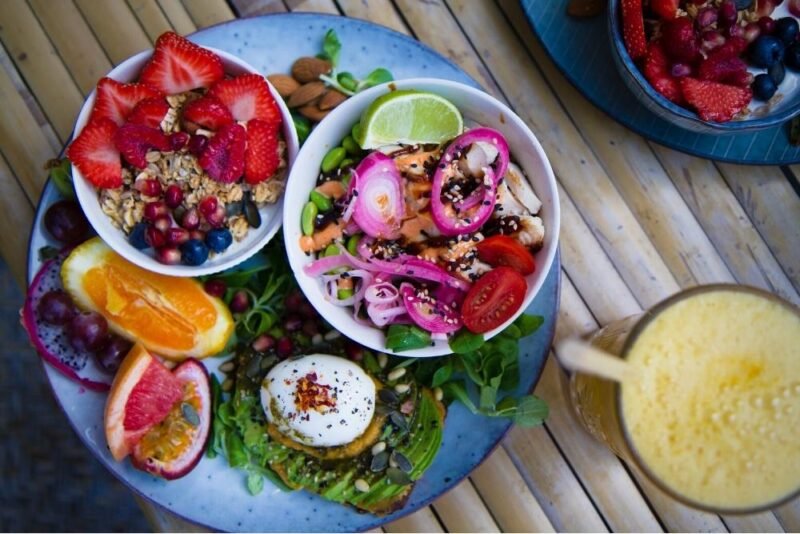
How do you view food? Is it fuel, is it pleasure, or is it a bit of both? I once had an email exchange with someone who argued that food is supposed to be fuel — period. She said that to view food as pleasure AT ALL was a gateway to food addiction. I had to respectfully disagree.
Obviously, food is fuel for your body. Filling your tank with the quantity and quality of food your body needs will help you operate at your best.
- Exhibit A: “Running on fumes” by not eating enough, or often enough, will leave you fatigued, cranky and ready to eat whatever’s not nailed down.
- Exhibit B: Regularly filling up with foods that are low on nutrition will leave you feeling lackluster.
But food is also pleasure.

You exist today because food is pleasurable
If nothing else, this is true from a pure neurobiology standpoint. Our brains are wired to register pleasure when we have experiences that we need to repeat in order to survive. If food didn’t provide pleasure, we wouldn’t exist today. Why? Because our caveman ancestors would have little motivation to put in the required effort needed to hunt a woolly mammoth. They wouldn’t have been bothered to sleuth out roots and berries that weren’t poisonous.
[mic drop]
Unfortunately, our brain’s reward circuitry doesn’t always mesh well with the abundance of highly palatable food in today’s modern food environment.
That may be especially true if you find yourself stretched so thin with work-home-life responsibilities that the only pleasure you feel you have time for is food. After all, we all need to eat, and, as one of my clients once pointed out to me, you CAN eat chocolate while doing the laundry.
The key is to find balance.
Taking food as fuel and deriving no pleasure from the experience is joyless. On the flip side, if food is your primary source of pleasure, it’s easy to veer into overindulgence. Using food as a primary source of pleasure can be like a canary in a coal mine — it’s a sign that deeper needs aren’t being met.
However, when food is just one of many things that brings you pleasure, this can lead to better-for-you choices. Why? Because ultimately we want our food to taste good and leave us feeling good. It’s not terribly pleasurable to end a meal feeling like you’re full-to-bursting and halfway to a food coma.

Pleasure as a path to nutrition
Pleasure can contribute to feelings of satisfaction after a meal. From a physical standpoint, satisfaction means eating enough to ease hunger. What happens if you get no sensory pleasure from your meal — either because you didn’t like it or because you were so distracted you barely noticed you ate it? You may be left unsatisfied and feeling that you need to find something else to eat, even though you aren’t hungry anymore.
A balanced, varied, nutritious diet allows for both pleasure and health — a rigid, restrictive diet does not. Most people find a variety of foods pleasurable, and some of those foods are going to be more nutritious.
What makes a food pleasurable? Taste, yes, but also temperature, texture and substance. It’s why you might prefer a cool, crisp salad in the summer, but a warm, filling vegetable soup in the winter.
Being able to appreciate the subtle pleasures of whole and less-processed foods — an appreciation that can be cultivated — will help you make choices that please your palate while offering the nutrition your body needs to thrive.
On the other hand, denying yourself favorite foods that you feel are lacking in nutrition can lead to reactionary overeating when you do eat one of these “forbidden” foods. And odds are you’ll wolf it down with a side helping of guilt, erasing the very pleasure you hoped to find.
Related posts:
Carrie Dennett, MPH, RDN, is a Pacific Northwest-based registered dietitian nutritionist, freelance writer, intuitive eating counselor, author, and speaker. Her superpowers include busting nutrition myths and empowering women to feel better in their bodies and make food choices that support pleasure, nutrition and health. This post is for informational purposes only and does not constitute individualized nutrition or medical advice.
 Print This Post
Print This Post



:quality(80))






